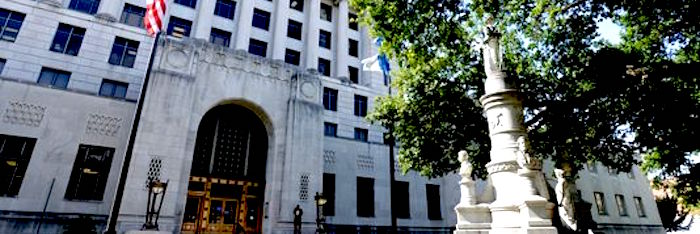Sunday morning came way too early for many in Caddo Parish on April 30. It was the day after voters rejected the property tax renewals that had been placed on the ballot. That morning, The Times in Shreveport couldn’t even bring themselves to report the election results in their printed edition. Online, this news must have still been too grim for them to report, as it was posted up with only a simple, almost curt headline, “Results uncertain, pending certification.”
You see, the day before, there had been an election, and renewing property taxes were the only items on the ballot. And voters had said “no”, or “not so fast,” to all of them. And online, at least, the news seemed tough to bear for some.
After all, many who had placed those tax renewals on the ballot, and supported renewing them, didn’t understand why. Caddo Parish Commissioner Patrick Jackson thought that voters “didn’t get the message,” saying “there is some misinformation that was put out, there is some more information that the parish needs to put out.”
Parish Administrator Dr. Woody Wilson, and several commissioners felt the public had been misinformed about the property tax renewals, too. They thought the public just “didn’t get it” and that after the voters get more educated about those tax renewals, they’ll come to see it differently, next time, and vote in favor of those taxes, instead.
But – what if the public already knows more than our government leaders think, and notices more than they realize?
Remember in 2010, when the Democrats lost control of the House, and voters handed Democrats more losses than in more than 62 years? Many government leaders then, also, said the voters “didn’t get the message”, and that too many had been manipulated into becoming angry about the wrong issues.
Back then, Barack Obama explained those 2010 elections as having to do with “anti-immigrant sentiment” or being “troubled” by what an Obama administration represents. Even actress Janeane Garofalo believed the voters just “didn’t get the message” in the 2010 elections, saying “this is about hating a black man in the White House.”
And just this month, Hillary Clinton explained her election day loss last year on those voters who just “didn’t get it,” or otherwise didn’t understand the issues. “I was on the way to winning,” she said, “until the combination of Jim Comey’s letter on October 28 and Russian WikiLeaks raised doubts in the minds of people who were inclined to vote for me but got scared off.”
Obama felt the same way about Clinton’s bid for President last year. He believes that the voters just “didn’t get it” because he thinks Clinton didn’t do enough to get her message out. If only HE had been the one to articulate her message, he says, he “could’ve mobilized a majority of the American people to rally behind it.”
But this “blame the voter” has happened before, though. The voters get blamed for not getting the message, or not being smart enough to know any better. In 1980, Republican rival John Anderson called candidate Ronald Reagan a sure-fire “loser,” comparing political suicide to the possibility of nominating Reagan as the Republican Party candidate for President. Even Gerald Ford labeled Reagan, “unelectable”. And Jimmy Carter was convinced that Reagan was the easiest Republican to beat.
You see, it’s not that the Caddo Parish voters “didn’t get the message” in voting “no” to the property tax renewals, it’s that they don’t trust their parish government to spend their tax dollars wisely, or honestly. At least, not yet.
And why should they? From spending millions to purchase the former General Motors plant (and then allowing millions of dollars worth of equipment inside to be sold off by others), to the Caddo Parish Employees Retirement System or “CPERS” (where it is reported that Commissioners received triple the amount they contributed), to the repeated requests for more revenue through multi-million dollar bond elections (even though the Commission’s reserves are almost double their annual budget), it’s not that voters “don’t get it” on these issues, or why taxes are needed in the first place.
It’s not that, at all.
It’s that the voters just don’t want any more of it.
